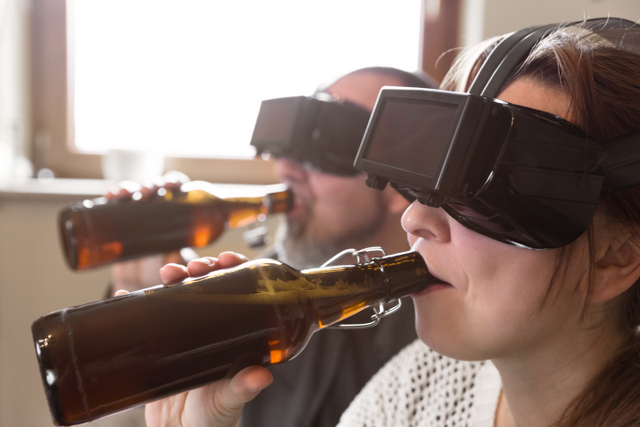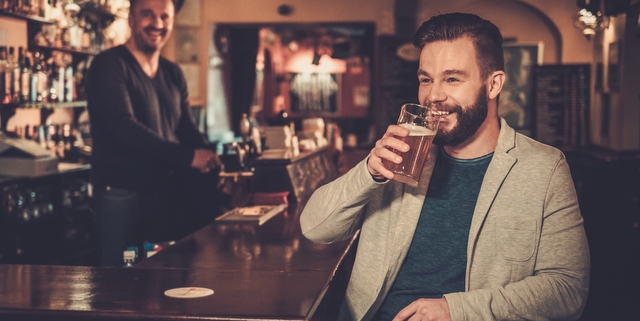
Influencers are those precocious individuals with the ability to draw attention (and followers) simply by expressing their likes and dislikes in social media. The use of influencers has become a recent and powerful trend for brewers. It has been reported that Budweiser teamed up with a former Bachelor contestant with almost 400K followers on Instagram to help promote its products. While influencers can be effective, questions abound about how brewers can take advantage of this practice without running afoul of the law and the industry codes.
Influencers and drinking
An interesting question is whether influencers can show themselves drinking beer in their posts. Let’s first look at why a brewer cannot use someone drinking in its ads. It’s not because it is forbidden by any law or even by the industry codes. The Federal Communications Commission’s manual on The Public and Broadcasting (July 2008) clearly states, “Congress has not enacted any law prohibiting broadcast advertising of any kind of alcoholic beverage, and the FCC does not have a rule or policy regulating such advertisements.”
Neither the Beer Institute Advertising and Marketing Code nor the Brewers Association Marketing and Advertising Code prohibit drinking in ads. In fact, the beer code recognizes that “beer advertising and marketing materials may show beer being consumed (where permitted by media standards).” The only express prohibition of drinking in ads comes from individual television networks which has transformed into an industry-wide practice. So, the short answer to whether influencers can post pics or videos online of them drinking is: sure.
Influencers and the FTC rules
In 2009, the Federal Trade Commission published its Guides Concerning Use of Endorsements and Testimonials in Advertising. This was followed by a 2015 FTC Enforcement Policy Statement on Deceptively Formatted Advertising. These sources provide guidance for putting consumers on notice that an influencer is being compensated by a marketer. Distilled to its essence, the FTC Guidelines require that an influencer must clearly and conspicuously disclose any material connection to the brand/marketer.
According to the FTC, for the purposes of the endorsement guidelines, an influencer’s sponsored posts (even on her own webpage or under her own social media account) are the brand’s advertisements, and a “material connection” includes not only paying the influencer but providing her with free products or other perks. One example in the guidelines involves a gamer who maintains a personal blog where he posts entries about his gaming experiences. This gamer receives a free video gaming system from the manufacturer who asks him to write about it on his blog. The FTC stated this is a material connection that must be disclosed.
Recently, the FTC has taken an interest in controlling influencer-based marketing. In April 2017, the FTC sent warning letters (dubbed by the FTC “educational letters”) to over 90 influencers and brands reminding them that if influencers are endorsing a brand and have a “material connection” to the marketer, that relationship must be clearly disclosed, unless the connection is already clear from the context. The FTC also released “Updated Guidance” that provides four “heads up” points for influencers:
- Clearly disclose when you have a financial or family relationship with the brand.
- Don’t assume that using a platform’s disclosure tool is sufficient.
- Avoid ambiguous disclosures like #thanks, #collab, #sp, #spon or #ambassador.
- Don’t rely on a disclosure placed after a CLICK MORE link or in another easy-to-miss location.
The FTC has also given guidance to brands who use influencers. In a 2017 Consent Order, the FTC required a brand to:
- Provide influencers with a clear statement of his/her responsibility to make clear disclosures of material connections to the brand.
- Establish and maintain a system to monitor and review influencers.
- Terminate influencers who don’t comply.
This consent order also provided guidance on how to make the disclosures:
- Make the disclosure in the same format as the ad — if visual, then visual; if audio, then audio.
- The disclosure must be “very near” the trigger endorsement.
- On the Internet, the disclosure must be “unavoidable.”
Influencers and the codes

Both of the industry codes could appear to apply to influencer marketing. Both codes specifically include advertising that is not just created by the brewer but also “under the control of the Brewer.” The codes specifically include content on “third-party internet and/or mobile sites… and social media sites.”
The question arises whether an influencer’s social media posts are “controlled” by the brewer. Neither code gives any bright-line answer to this question. Without a sufficient definition of “control,” we are left to decide whether the hiring alone of an influencer to produce content is sufficient control or whether control requires more input by the brewer over the actual content.
Some of the specific obligations under the codes appear too unwieldy to apply to influencers’ content. For example, the codes require that the marketing materials should only be placed in media where at least 71.6 percent of the audience is expected to be of legal drinking age. You must confirm in any digital media in which there is dialogue that the user is 21 or older. And under the Brewers Code Digital Media Guidelines, if content can be emailed from the site, one must instruct users that it cannot be forwarded to minors.
Further, much of the conduct prohibited by the codes could be inconsistent with typical postings on social media, such as persons lacking control over their own behavior, indecent language and sexually explicit behavior, among others. There is only so much a brand can do to rein in its influencers from exhibiting this type of behavior.
A practical approach may be to apply the codes’ manageable obligations, while keeping an eye out for actions of the influencer that could violate the code.
Helpful tips
Here are some helpful tips for brewers using influencers on social media:
- Use only influencers 25 years of age or older.
- Have a written agreement with the influencer setting forth his/her responsibilities concerning the need to make clear disclosures of his/her material connections with the brewer. Such disclosures could include: #Sponsored or #[Brand]Promoted
- Provide the influencer leeway concerning their posts.
- Instruct influencers to only post advertising concerning your brand on sites approved in advance by you.
- Instruct influencers to portray any drinking in a responsible manner.
- Instruct influencers to avoid any sexually explicit conduct, derogatory comments or comments demeaning other brands.
- Instruct influencers to not depict minors in any materials.
- Monitor the influencer’s conduct and instruct her to take down any inappropriate posts.
- Terminate the influencer if she refuses to comply with these instructions.
Verrill Dana attorney Rob Laplaca focuses his practice on commercial litigation and advertising, promotion and marketing law, representing well-known brands as well as regional companies both within the brewery market and in other industries.





Leave a Reply
You must be logged in to post a comment.